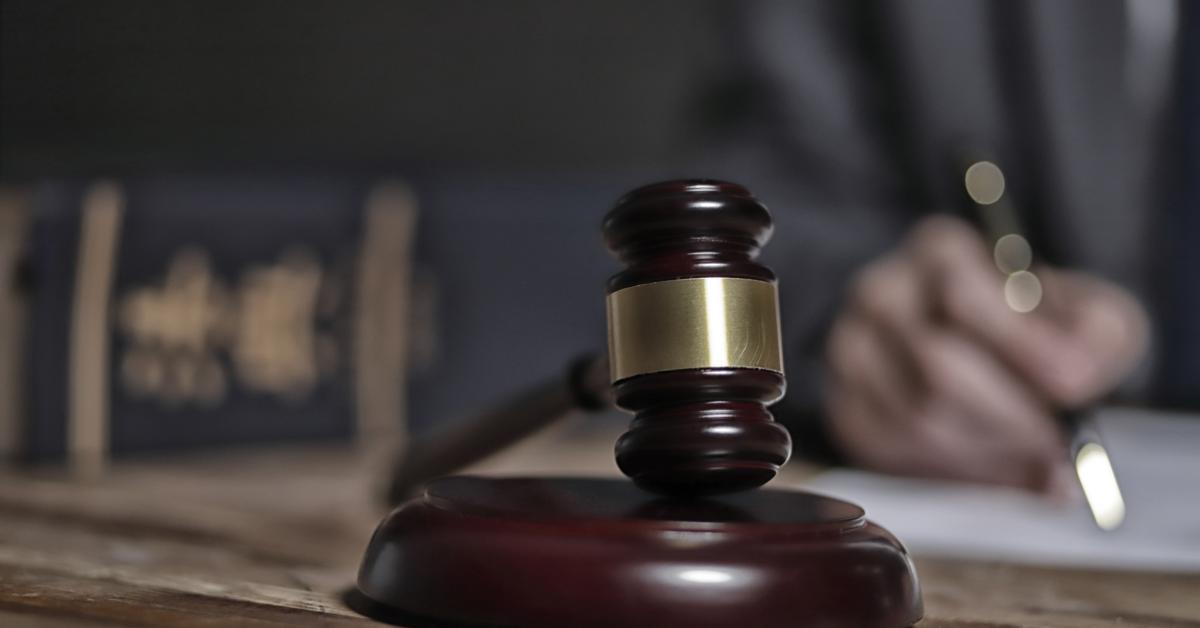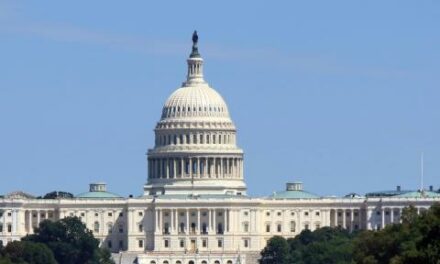We support our Publishers and Content Creators. You can view this story on their website by CLICKING HERE.

A Republican lawyer has filed an amicus brief in a lawsuit over robocalls containing artificial intelligence “deepfakes” sent by a political consultant before the New Hampshire primary election, arguing that the left could claim any contrary political views are “misinformation.”
Republican lawyer Dan Backer filed the “friend of the court” brief earlier this month on behalf of telecommunications companies and a political consultant in an AI robocall case because of free speech concerns. If the plaintiffs in the case win, then private actors could sue over political views that the government opposes, he warns.
The lawsuit began with a deepfake AI robocall earlier this year.
A “deepfake” is defined by the Oxford English Dictionary as media “that has been digitally manipulated to replace one person’s likeness convincingly with that of another, often used maliciously to show someone doing something that he or she did not do.”
Steve Kramer, a get-out-the-vote political consultant who has mainly worked for Democrats, previously admitted to media outlets that he had sent robocalls to thousands of state residents with an AI deepfake of President Joe Biden’s voice ahead of the New Hampshire primary election, NBC News reported. The call, which “spoofed” the caller ID to hide its origin, told them to stay home and “save” their votes for the general election.
Kramer had a contract with the campaign of Rep. Dean Phillips, D-Minn., at the time, who was challenging Biden. Both Kramer and Phillips’ campaign denied that the latter had any knowledge of the robocall.
Kramer has claimed that he commissioned the robocall to lead to regulations on AI deepfakes.
“This is a way for me to make a difference, and I have,” Kramer told NBC News in February. “For $500, I got about $5 million worth of action, whether that be media attention or regulatory action.”
Kramer has been sued by the state and the League of Women Voters (LWV) over the robocall, while also facing fines from the Federal Communications Commission (FCC).
In May, the Republican New Hampshire attorney general charged Kramer with 13 felony counts of voter suppression and 13 misdemeanor counts of impersonation of a candidate, based on calls received by 13 New Hampshire voters. After his June bail hearing, Kramer declined to comment as he left the courthouse. His attorney said, “Obviously right now we’re enjoying the presumption of innocence, we’re going to review all the different charges and engage in discussions with the attorney general’s office.”
A civil lawsuit was filed by LWV against Kramer in New Hampshire’s federal district court in March, along with telecom and broadcasting companies. LWV argues that “the right to vote free from intimidation, threats, or coercion … was unlawfully infringed upon as a result of the actions and threatened actions” of the defendants.
LWV claims that Kramer violated a section of the Voting Rights Act of 1965 (VRA) by sending the robocall with “in an effort to intimidate, threaten, or coerce Democratic voters into not voting in the New Hampshire Primary and thereby suppress their votes.”
In July, the U.S. Department of Justice (DOJ) filed a statement of interest in the case, arguing that LWV has “a private right of action” to sue over the VRA. The DOJ wrote that the section of the VRA cited by LWV in its lawsuit “is enforceable by private plaintiffs.”
In February, the FCC banned the use of AI-generated voices in robocalls, following those that Kramer sent.
Last month, Lingo Telecom, the voice service provider that transmitted the robocalls, reached a settlement with the FCC to pay a $1 million fine. Lingo Telecom also agreed to more thoroughly vet the accuracy of the information provided by its customers and upstream providers and adhere to strict caller ID authentication rules and requirements.
Kramer is separately facing a proposed FCC fine of $6 million for allegedly violating federal Caller ID law by setting up “scam calls” in order “to defraud voters,” according to the federal agency.
Late last month, a motion for a default judgment filed by LWV against Kramer was granted. He does not have a lawyer listed for the case.
Meanwhile, Backer filed an amicus brief on behalf of Kramer and the telecommunications companies.
Backer’s amicus brief argues that LWV doesn’t have “a private right of action” to sue over the VRA nor standing to bring the case, that “ambiguous political speech” doesn’t “constitute ‘intimidat[ion], threat[s], or coerc[ion],’” and the VRA “did not apply to the 2024 New Hampshire Democratic Presidential Preference Primary.”
He also notes that the LWV lawsuit “does not allege even a single recipient of this pre-recorded message felt threatened, intimidated, or coerced in any way.”
Rather, the three voters who are plaintiffs in the lawsuit “each claimed within a few seconds they realized the call was ‘fraudulent’; ‘not legitimate’; or ‘faked.’ Plaintiffs nevertheless sue under § 11(b) based solely on one alleged potential interpretation of the calls: the supposed ‘insinuat[ion]’ that ‘people could lose their ability to vote if they participated in the New Hampshire primary.’”
The brief asks the court to dismiss LWV’s count over the VRA section “and decline to enter a default judgment based on it.”
Backer told Just the News on Tuesday that it’s “scary” that threats don’t have to be committed but that “anything” the left thinks “is misinformation can be brought” to court “under this law.”
He also expressed concern over the $1 million FCC fine that Lingo Telecom paid, noting that it sets a “precedent to censor content,” and that the telecommunications company is “no longer a carrier” since they “may now have a duty to monitor” content.
Backer explained that telecommunications companies are “not in the middle” of customers’ phone conversations.
Regarding AI robocalls, Backer said, “As a practical matter, how can a telecom carrier know if it’s a real person?” They “can’t know the content of a call, unless they’re listening to every call.”
Backer added that the section of the VRA cited by LWV in its lawsuit is about not “stand[ing] out in front of polling places, threatening to beat people up if they vote.” The VRA section is to be prosecuted by the government, he said.
“We need the judge to reject this outrageous, unconstitutional, misstatement of law,” Backer said, adding that LWV experienced “no harm,” has no “legal standing, organizational injury, and no claim” for this lawsuit.”
We “cannot have a society where the government decides what’s true and what’s false,” and then have “private actors sue” over political views, Backer said, calling it an “appalling abuse of our legal system.”

 Conservative
Conservative  Search
Search Trending
Trending Current News
Current News 





